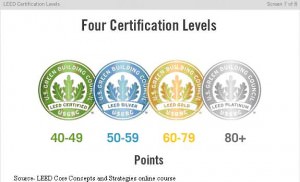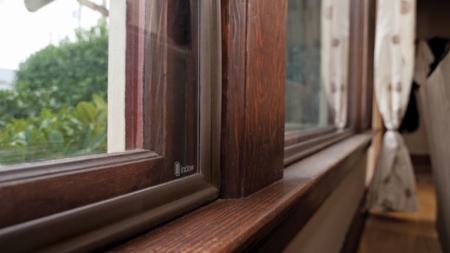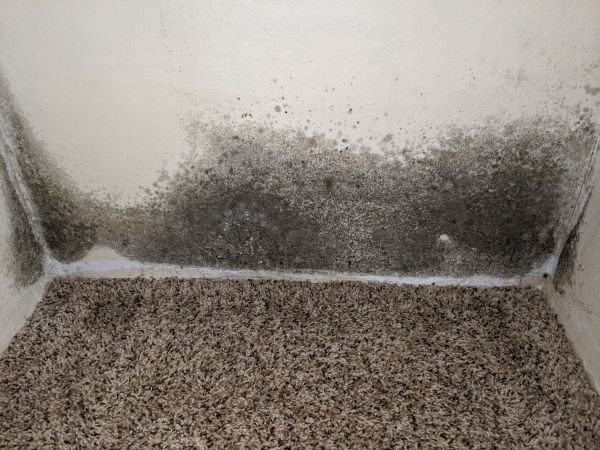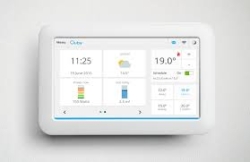LEED, which stands for Leadership in Energy and Environmental Design, is a recognized standard for green building design and sustainability. The LEED rating system was developed by the non-profit U.S. Green Building Council and is designed to promote design and construction practices that not only increases profitability, but also reduce negative environmental effects of buildings while contributing to occupant health and well-being.
According to the U.S. Green Building Council website, LEED certification “provides independent, third-party verification that a building, home or community was designed and built using strategies aimed at achieving high performance in key areas of human and environmental health”. The LEED rating system has four levels of certification: Certified, Silver, Gold, and Platinum.
The levels correspond to the number of points accrued in five green design categories: sustainable sites, water efficiency, energy and atmosphere, materials and resources, and indoor environmental quality. LEED rating systems generally have 100 base points (depending on the project), plus six bonus points for Innovation in Design and four Regional Priority points, for a total of 110 points. LEED for Homes is based on a 125-point scale, plus 11 bonus points for Innovation in Design. Building projects achieve LEED certification based on the number of points they earn.
Over 7,000 buildings in the United States and many other countries have achieved LEED certification since it became available in 1993. On a local level, all new construction and major renovations by the City of Portland must achieve Gold-certified LEED standards. In the Portland area, there are multiple buildings that are LEED certified, such as Epler Hall, a mixed-used residence hall at Portland State University that captures rainwater for reuse. Other examples are the Gold-certified Rose Garden, Guthrie Building in downtown Portland that is LEED certified, Rosa Parks Elementary School in North Portland that is Gold certified, and the Jean Vollum Natural Capital Center in the Pearl District that is also Gold certified.
LEED certification can apply to any building project, including commercial, residential, and entire neighborhood communities. It works throughout the life cycle of the building including design and construction, operations and maintenance, and minor and major renovations. According to the U.S. Green Building Council website, LEED rating systems address the following types and scopes of projects:
- New Construction & Major Renovation
- Core & Shell
- Schools
- Retail: New Construction & Major Renovations / Retail: Commercial Interiors
- Healthcare
- Commercial Interiors
- Existing Buildings: Operations & Maintenance
- Homes
- Neighborhood Development
A recent Bronze Construction Inc project is Fire Station 18. This is the City of Portland’s first fire station to receive LEED Gold certification. Some highlights of the fire station project include a rainwater cistern that will save over 130,000 gallons of water per year, high efficiency water fixtures that will save 28,000 gallons of water annually, reduced energy consumption of more than 30% due to high efficiency electrical and mechanical systems, solar panels, and efficient use of daylight for light use within the building. In addition, 97% of construction waste was recycled instead of going to a landfill.






